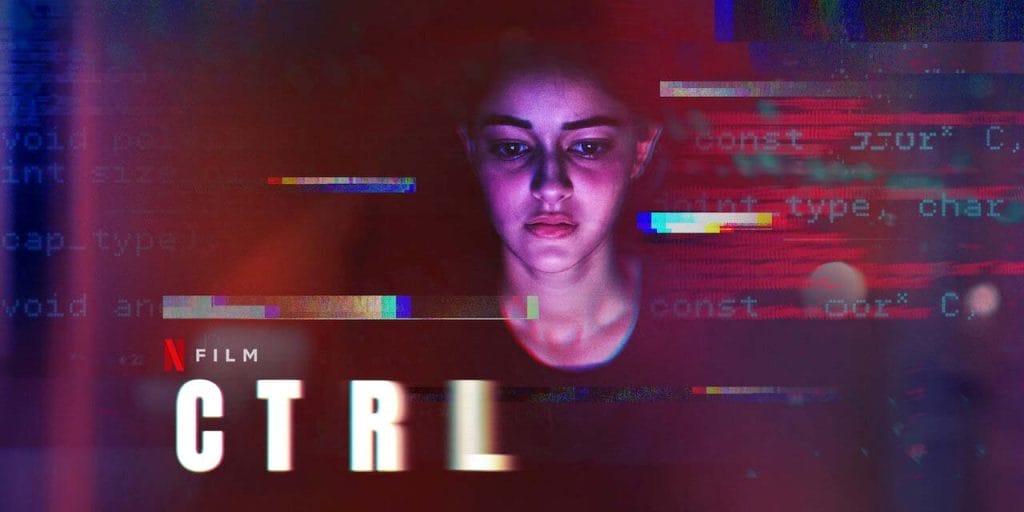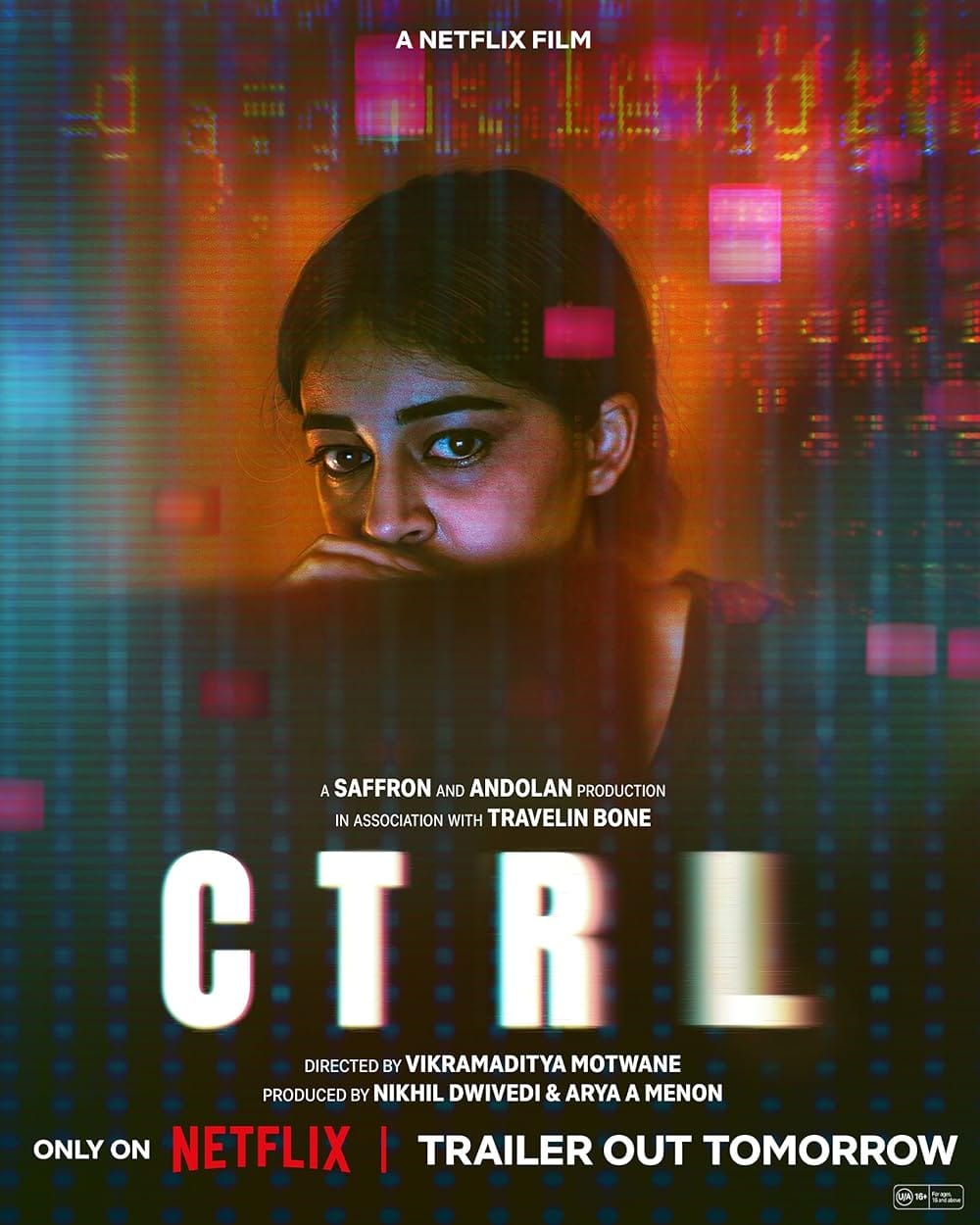CTRL emerges as a profound cautionary tale, intricately navigating the perilous intersections of cybercrime and artificial intelligence, while delivering a timely critique of our increasingly digitalised existence. For those ensnared by the addictive, relentless pull of social media, Vikramaditya Motwane’s latest offering holds up a stark mirror to the dilemmas of our hyper-connected age. Far from being a simple reflection of societal anxieties, the film becomes a rich platform for Ananya Panday, who further cements her place as an actress adept at portraying characters whose lives are deeply enmeshed in the virtual realm.
Far from being a simple reflection of societal anxieties, the film becomes a rich platform for Ananya Panday, who further cements her place as an actress adept at portraying characters whose lives are deeply enmeshed in the virtual realm.
In CTRL, Panday embarks on yet another coming-of-age narrative, though this time, the journey is shaped by the ethical and emotional challenges unique to the Gen-Z digital landscape.
Since her breakout in Kho Gaye Hum Kahan, Panday has developed a knack for portraying characters who, at first glance, seem carefree and superficial, shaped by their social media presence. But the true brilliance of her performances lies in the deceptive simplicity she offers at the outset—light, even frivolous, characters who, as the narrative unfolds, reveal a depth and complexity that resonate on a much deeper emotional level. In CTRL, Panday channels the inner turmoil of a generation whose identities are forged, distorted, and consumed within the volatile and often destructive world of online validation.
CTRL and the illusion of digital validation
The plot of CTRL revolves around Nella Awasthi (Panday) and Joe Mascarenhas (Vihaan Samat), two social media influencers thriving in an ecosystem that runs on attention as currency. Their existence is defined by a relentless need for digital validation—each like, share, and comment reinforcing their sense of self-worth and success.
Motwane skillfully crafts a chilling, authentic portrayal of a world where privacy has become obsolete and the curation of a perfect online image eclipses the authenticity of real life. As Nella and Joe lose themselves in their digital personas, the authenticity of their relationship begins to unravel, raising a poignant question: Has their insatiable hunger for validation hollowed out the core of their connection?
A darker twist emerges when an unexpected event shatters their seemingly perfect digital universe, driving Nella to make the drastic decision to erase Joe from her life—both physically and virtually. She turns to an AI-powered app that promises to wipe away every trace of him from her online world, a decision that initially seems therapeutic, even empowering.
She turns to an AI-powered app that promises to wipe away every trace of him from her online world, a decision that initially seems therapeutic, even empowering.
Yet, what begins as a digital cleansing soon spirals into something far more sinister. Nella soon realises that erasing someone from her virtual existence has profound, real-world consequences. As her meticulously constructed online persona begins to crumble, so too does her sense of self. In her attempt to erase Joe, she inadvertently erases pieces of her own identity, plunging her into an existential crisis that serves as the film’s core tension: Can Nella break free from the parasitic grip of the digital world, or has she become so deeply embedded in its mechanisms that escape is impossible?
The psychological toll of a hyper connected world
Motwane’s talent for exploring the perils of achieving one’s desires—often at an unanticipated and devastating cost—shines through once again. Much like the psychological suffocation seen in Black Mirror, CTRL evokes a chilling claustrophobia, but here it is the slow, relentless constriction of technology’s grasp that traps Nella. As her world spirals out of control, the audience is drawn into her inner conflict, a reflection of the very real anxieties plaguing our own time.
In a world where social media influencers do not just reflect culture but actively shape it, CTRL serves as a sobering examination of the vulnerabilities that arise from living a life ruled by algorithms. Streaming platforms that manipulate preferences and corporations that blur the lines between autonomy and surveillance shape every facet of our reality.
While CTRL broaches critical issues such as data privacy, digital manipulation, and the growing dependency on technology, it consciously avoids descending into a full-blown dystopian narrative. The tension is expertly crafted, but the film opts for a more measured, introspective conclusion rather than a high-octane thriller climax. Motwane chooses to reflect on the present rather than predict a terrifying future, presenting a cautious contemplation rather than a grim prophecy.
While the film raises urgent and necessary questions, it refrains from delivering the visceral, unsettling ending one might expect from a narrative centered on the perils of technological overreach.
While the film raises urgent and necessary questions, it refrains from delivering the visceral, unsettling ending one might expect from a narrative centered on the perils of technological overreach. As a result, CTRL feels more like a reflective warning, urging the audience to rethink the consequences of their digital entanglements rather than delivering a comprehensive reckoning with our collective dependency on the virtual world.
Existential crisis of digital identity in CTRL
Ultimately, CTRL serves as a thoughtful commentary on the contradictions of a life dominated by social media. It sheds light on how technology can warp, distort, and even destroy personal relationships, though it stops short of fully grappling with the more insidious ramifications of our digital dependence.
While the film may not reach the heights of a heart-stopping thriller, it succeeds as a deeply engaging meditation on how the very platforms we once embraced now have the power to entrap us. As CTRL illustrates, detaching from this digital ecosystem is not just a logistical feat—it is a personal and psychological ordeal.
In conclusion, CTRL is a sophisticated exploration of technology’s far-reaching influence, delving into the existential crises it can provoke—especially for a generation raised on the currency of digital validation.
In conclusion, CTRL is a sophisticated exploration of technology’s far-reaching influence, delving into the existential crises it can provoke—especially for a generation raised on the currency of digital validation. Although the film leaves certain narrative threads untapped, it presents a sobering glimpse into a future where personal identity is inseparably linked to one’s online presence.
As a cinematic experience, CTRL not only entertains but also offers a sobering reminder of the stakes involved in balancing digital autonomy with the overwhelming pressure of technological entrapment, forcing us to confront the delicate balance between authenticity and the artificial in a world ruled by screens.







